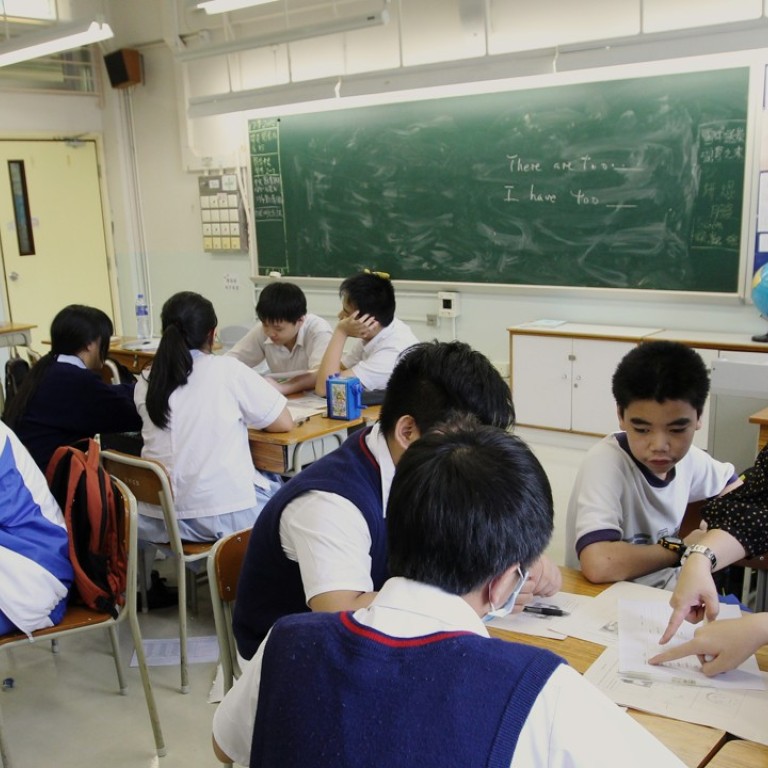
Letters to the Editor, November 27, 2017
Teens must learn survival skills for work
A recent survey has shown that local university students are less prepared for the work environment in Hong Kong than their counterparts in Singapore and South Korea, especially in the area of technology.
Young people at local schools and universities need to learn the necessary skills if they are to survive in what is a competitive jobs market.
For example, they need to acquire good communication skills. Workshops should be set up in schools, so that teens can acquire the necessary skills that they will need to succeed in the workplace.
Learning how to cope with pressure at school and university can prepare them for dealing with stress as adults, as the pressure they face in some careers will be even tougher than what they had to deal with in the education system.
The government should also be doing more to promote STEM (science, technology, engineering, maths) courses, so more pupils choose them. And in classes with these subjects, teachers must emphasise the importance of creativity and cooperation, so youngsters learn the importance of team work.
More also has to be done to nurture leadership skills in young people.
Vico Yeung, Tsuen Wan
Many Indians are happy with Modi’s policies
In contrast to writers with an anti-Bharatiya Janata Party agenda, experts, including the World Bank, have backed Indian Prime Minister Narendra Modi’s economic policies.
Earlier this month (in a statement issued by the US India Strategic Partnership Forum), Indira Nooyi, chairperson of PepsiCo said, “India’s economy is making tremendous progress, particularly when it comes to digital infrastructure and using technology to turn demonetisation into re-monetisation. Given the prime minister’s commitment to making it easier for international companies, I have a feeling that the pace of change will only accelerate, and before long Incredible India will be known as Innovative India.”
One of India’s top economists, Surjit Bhalla, who has in the past been critical of Modi, has been a great supporter of demonetisation.
He has attacked the Centre for Monitoring Indian Economy’s misleading claim that 1.5 million jobs were lost in the first four months of the year. The CMIE made a comparison from September to December, 2016, and January-March 2017, failing to take into account the “seasonality” in employment.
Bhalla has said a much better yardstick would be comparing the figures of January-August 2016 (pre-demonetisation), and January-August 2017 (post demonetisation).
This comparison showed that for the population aged 15-24, employment rose by seven million, and for the age group 25-64, a healthy 12.7 million, or a rate of growth of 3.7 per cent, the highest over the past 35 years.
In a recent opinion poll in 250 constituencies across India, when asked if they thought the pain of demonetisation was worthwhile to fight black money, 65 per cent of respondents said yes. While 45 per cent said implementation of demonetisation was flawed, 62.3 per cent said, despite that, they still supported it.
I visit India regularly and most people I talk to say they are satisfied with demonetisation. Also, only those people who want to continue evading paying taxes are unhappy with the goods and services tax.
Kishore Sambwani, Pok Fu Lam
Patients should stop expecting antibiotics
Hong Kong people are well known for expecting doctors to provide a quick fix in terms of medication when they suffer physical discomfort, even for the mildest medical condition. Patients seem to expect antibiotics for almost every ailment, even when they are not needed and too many private doctors seem willing to oblige.
There are many conditions where antibiotics are not needed and would not do any good. Sometimes, what is needed is plenty of rest, drinking fluids, and giving yourself time to get better.
Some private doctors, faced with unrealistic expectations, may find it difficult to refuse to prescribe antibiotics if that is what the patient wants.
The best way to change attitudes is through education.
If it is explained to people that some conditions do not require antibiotics, then they will hopefully get out of the habit of constantly demanding to have them.
The government should issue guidelines to general practitioners and find a way to monitor them, with random checks on prescriptions.
Doctors must be urged to think twice before prescribing antibiotics.
Stephen Leong, Fanling
School ban on bottled water the right move
Earlier this year, the University of Hong Kong banned the sale of disposable bottled water on its Pok Fu Lam campus in an effort to help reduce plastic waste.
As a Secondary Five pupil, I hope this ban can also be implemented in all schools in Hong Kong.
One green group estimates that over five million plastic bottles are discarded in the city every day, so a ban could cut this number and help to protect the environment.
Having a widespread ban on the sale of these bottles can ease the burden on our landfills.
The world’s oceans are full of plastic and it is often ingested by sea birds and fish, and affects the food chain and our health.
A sales ban can help raise awareness among pupils about the need to be eco-friendly. They could then hopefully talk to their family members and persuade them to cut back on their use of plastic.
I understand there will be some inconvenience as pupils queue up at water dispensers to fill up their reusable bottles. The easiest way to deal with that is for schools to have more of these dispensers on the campus.
Yeung Ka-yi, Sham Shui Po

